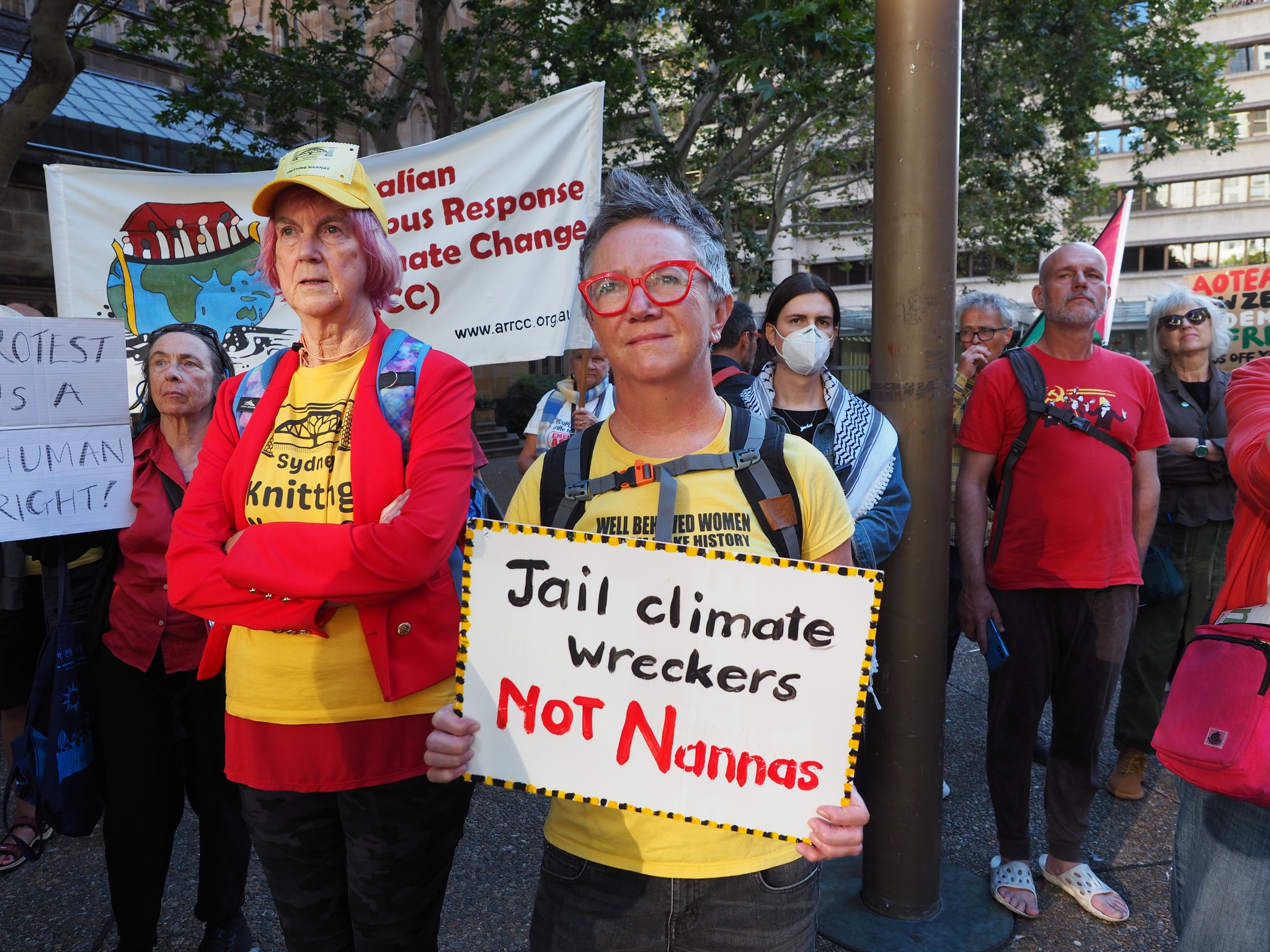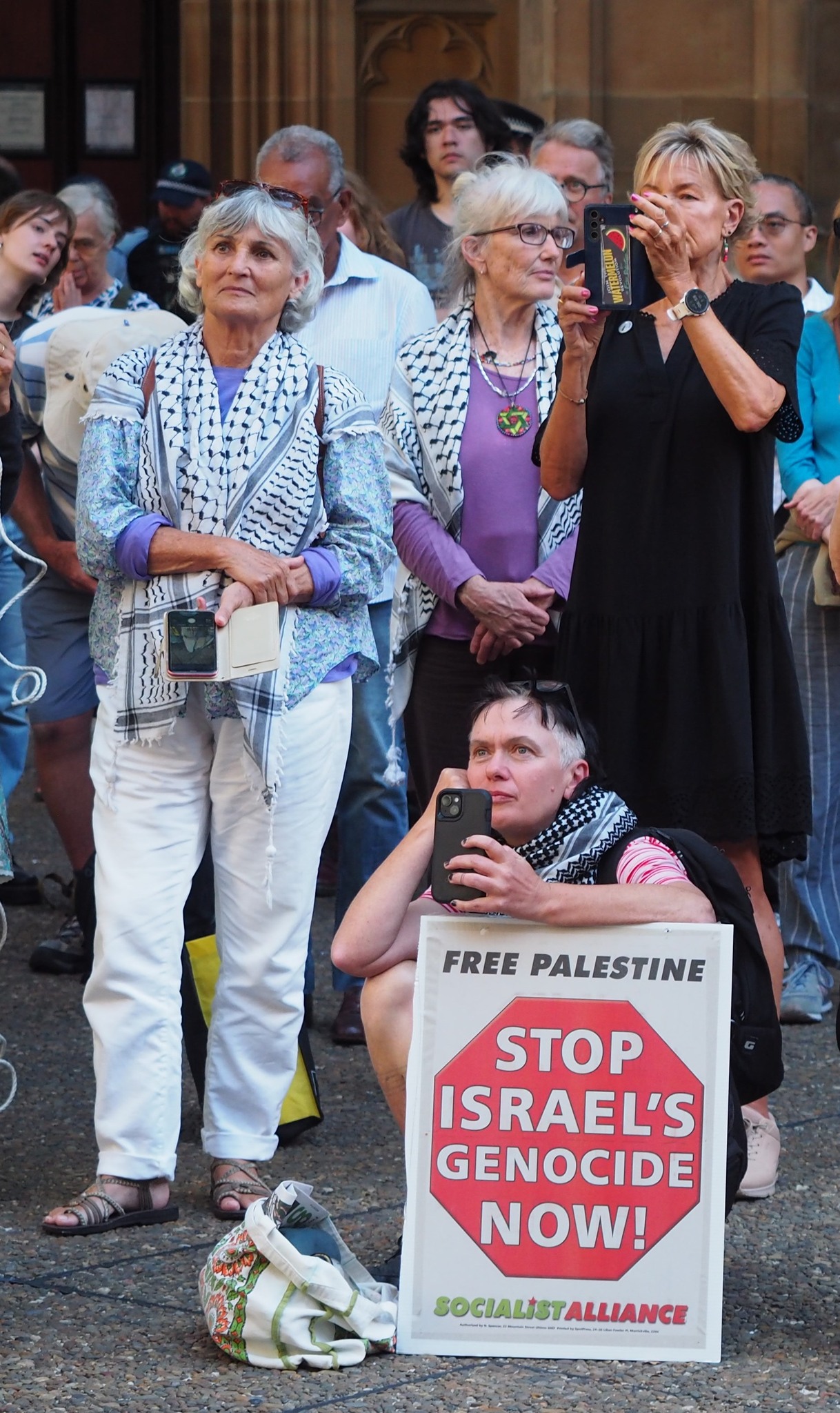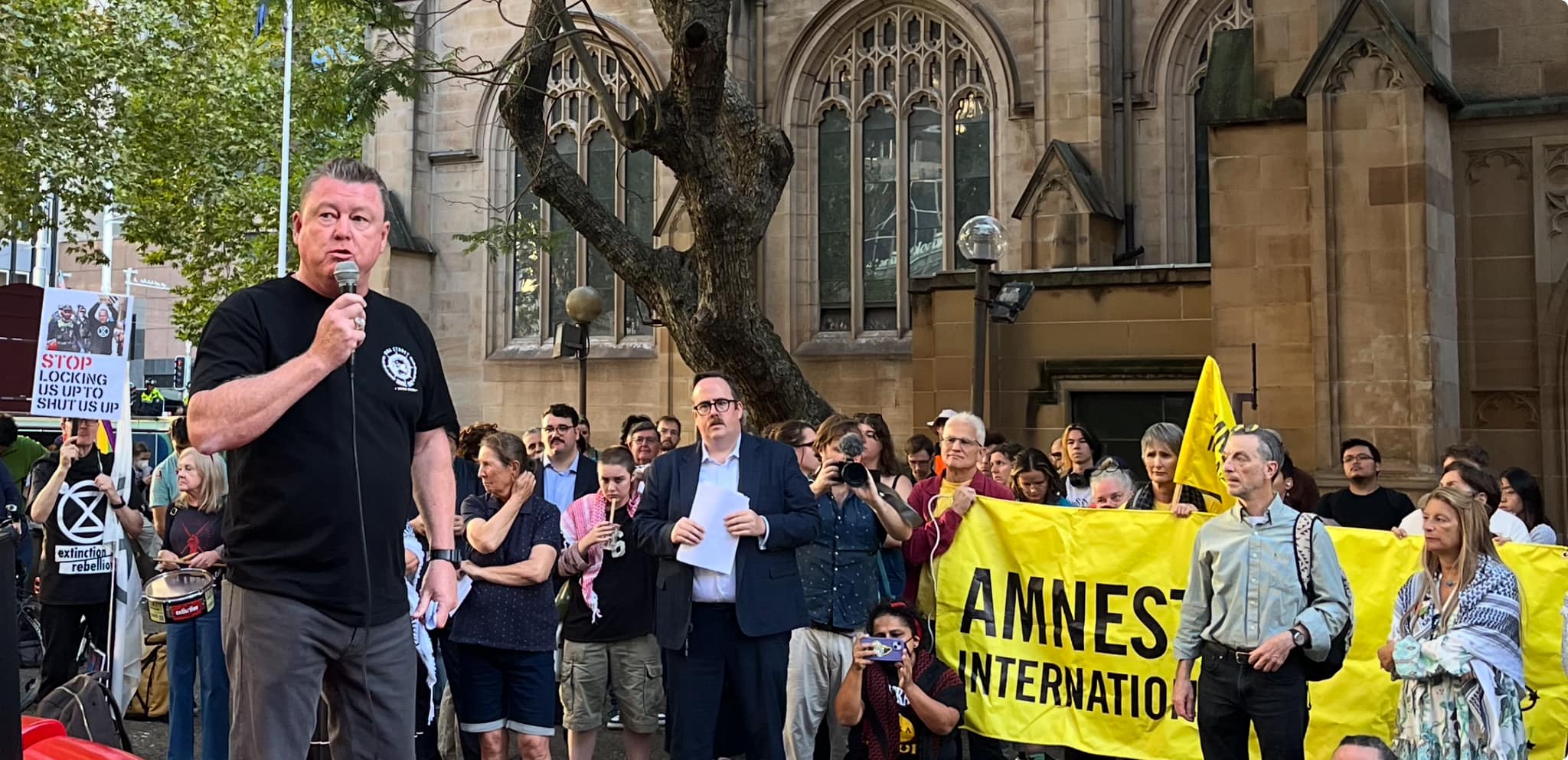
About 200 people rallied at Sydney Town Hall Square on February 17 to hear civil and social movement leaders condemn NSW Labor’s proposed new laws banning protests near places of worship.
It was organised by the NSW Council for Civil Liberties (NSWCCL), under the umbrella of the Australian Democracy Network.
NSW Labor wants new laws that allow police can move protesters away from places of worship. Anything that could be perceived as “harassment”, including chanting, could lead to a person spending two years in prison.
“These new laws are about curtailing the right to free speech and the right to protest,” Rachel Evans, Socialist Alliance candidate for Sydney, told Green Left.
“The perpetrators of genocide and their supporters want to silence legitimate anti-genocide protests using ‘antisemitism’ as the excuse.”
Evans said NSW already enough laws to protect people from violence, harassment or intimidation, including near places of worship.
The NSWCCL said a government review of hate speech laws last year had recommended police use existing laws to address vilification, rather than introduce new ones.
Instead, the NSWCCL said “targeted reform” to address racist violence, “including measures to prevent far-right extremism and a bolstering of community-based multiculturalism initiatives”, is what is needed.
Leaders from 12 faith communities are concerned about the proposed laws’ impact on protests. City of Sydney mayor Clover Moore has also warned of their impact on “genuine and peaceful demonstrations at the plaza outside the Town Hall”, next to St Andrew’s Cathedral.
Moore said a real commitment to addressing antisemitism and Islamaphobia should “not erode civil rights or chill genuine protest in the process”.
NSWCCL president Timothy Roberts told the rally that the proposed anti-protest laws would “illegally” restrict civil liberties.
Uniting Church Reverend Josephine Inkpin, a transgender woman, said marginalised groups need “better recognition” and “appropriate protection”. “However, this legislation is not that.”
Alon Uhlmann, from Jews Against the Occupation ’48, told the protest that such laws have “nothing to do” with curbing hate or antisemitism.
“The government is cynically weaponising antisemitism to suppress protests and to crack down on … Jews and non-Jews who oppose the genocide in Gaza and the ethnic cleansing of Palestine.
“But it will not work.”
“Non-Zionist Jews will continue to campaign against antisemitism and we also stand with Palestinians and Muslims against Islamophobia,” Uhlmann said.
Jackie Turner, director of the Trans Justice project, told the protest that limiting the freedom to protest “diminishes democratic rights in general”.
Josh Lees, from the Palestine Action Group, said: “No link has been shown between the recent antisemitic graffiti incidents and the Palestinian protest movement. The real source of antisemitism is the rise of the far right.”
Paul Keating, Maritime Union of Australia Sydney branch secretary, warned that “laws like these have previously been used against the climate movement”.
Eurydice Aroney, from the Sydney Knitting Nannas and Friends, said they had successfully challenged the current anti-protest laws, with the High Court declaring aspects unconstitutional.
“Our marches in Coffs Harbour have passed by four places of worship in the town. Are they going to be banned under this new legislation?” she asked.
[Write to your NSW MP to demand they stand up for democratic rights.]
right_to_protest_pb_7.jpg

right_to_protest_pb_8.jpg

right_to_protest_pb_3.jpg
